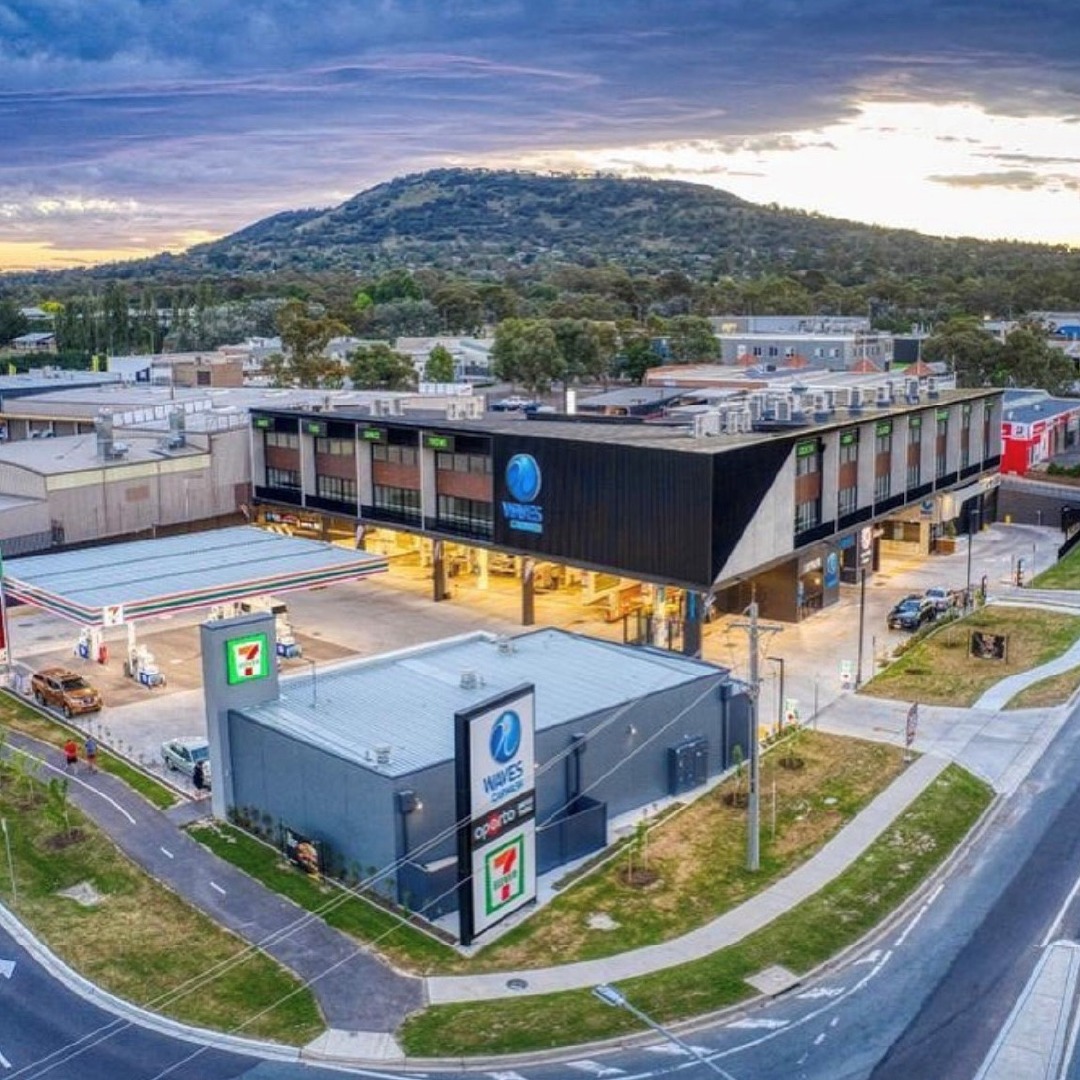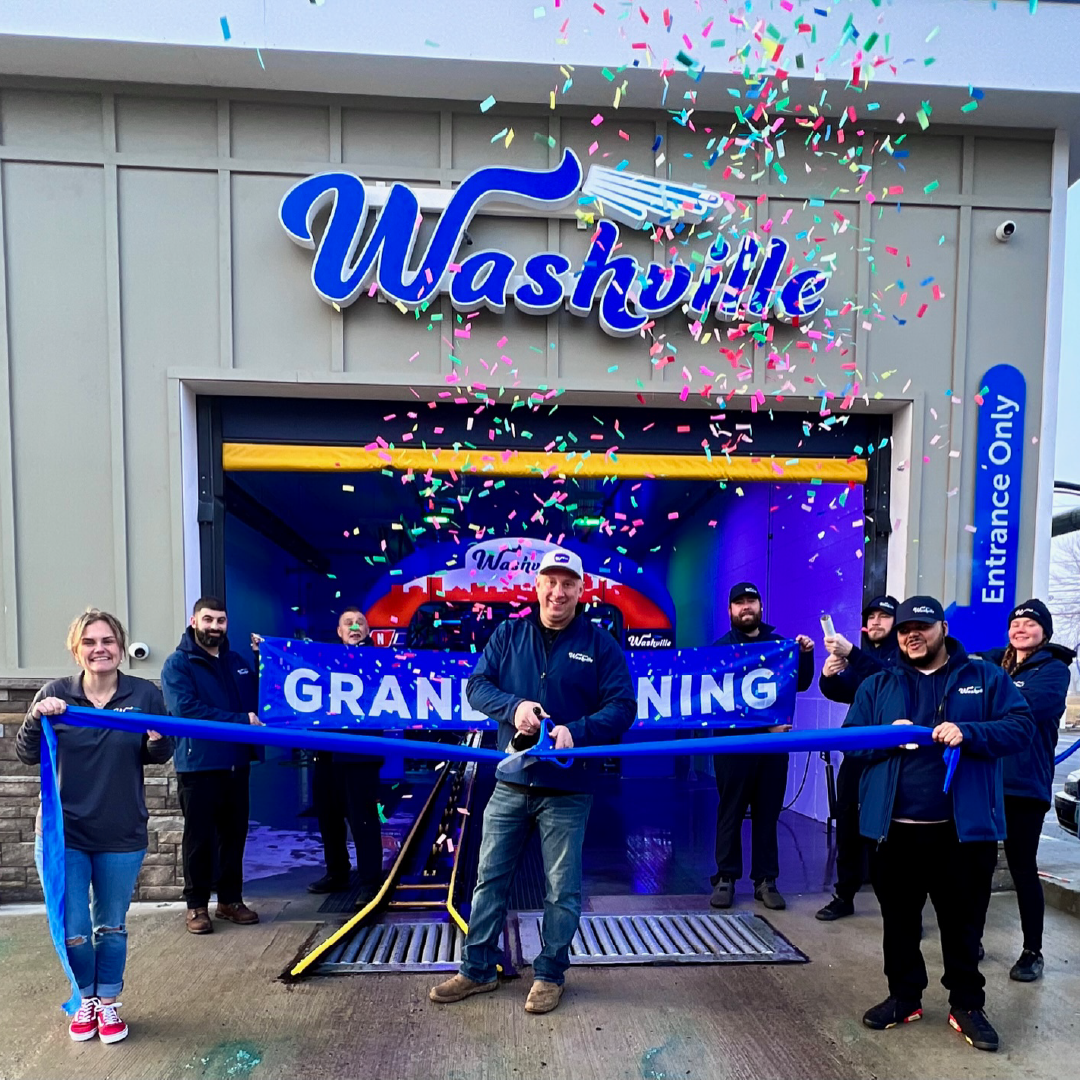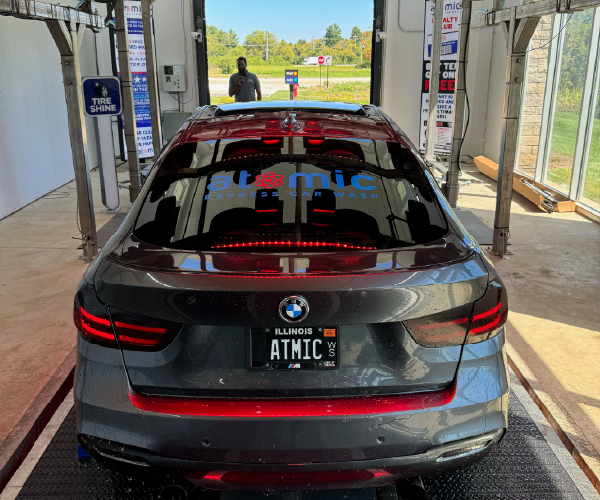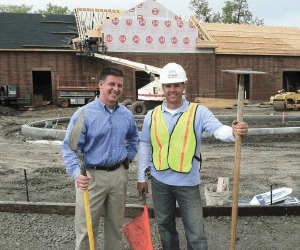
That’s the Spot!
December 3, 2021
8 minute ReadBY NICK FORTUNA
When customers visit one of the five Wiggy Wash locations in Utah, they’re usually quite sure they’ve arrived at the right place. The car washes have a distinctive look, with a giant blue stucco wall running perpendicular to the roadway and a big steel structure attached to it featuring signage and a large LED message board.
The wall and steel attachment make Wiggy Wash’s locations hard to miss, but they initially were a source of agita for founder Brent Wignall, forcing him to get creative and work around municipal ordinances restricting signage. For car wash operators, those regulatory hurdles add even more complexity to the highly consequential process of site selection, making it crucial that they perform their due diligence before executing their plans to expand.
In the initial Wiggy Wash design, six inches separated the steel structure from the blue wall, allowing the steel to flex with the wind and not crack the stucco. But since the two structures weren’t attached, the city of Spanish Fork considered the steel frame to be a pole sign, which was banned by city ordinance for aesthetic reasons.
Wignall said he spoke with the city manager, mayor and city council members to see if there was a workaround, and eventually, he arrived at a solution. Attaching the steel frame to the top of the wall at several points would make it part of the larger structure and not a pole sign. He used several pieces of steel to connect the steel frame to wooden beams underneath the stucco in the blue wall, and then he covered the joints in stucco to preserve the blue wall’s look. Problem solved.
Wignall said that as a large man who can seem intimidating unintentionally, he made it a point to approach city officials in a calm, humble way, asking questions about the purpose of the ordinance and their concerns. The experience drove home the importance of fostering relationships with local officials and networking with other small business owners who have experience dealing with a city’s ordinances.
“The Chamber of Commerce is the best way to get involved and talk with business owners to find out what kind of city and community you’re dealing with,” Wignall said. “A lot of them will know if it’s a huge pain to build new residential and commercial buildings there.” Take, for example, Swift Car Wash in Woodstock, Illinois, which had to secure a zoning variance because of a city code that said, “no vacuuming activities may take place in any front yard or any location visible from a public street.” Or, the use variance that Soaring Car Wash of Somerville LLC in New Jersey has to secure to build a modern, state-of-the-art car wash in a shopping center zone that used to be the site of a dairy farm. They also need variances for the front yard setback and sign location and waivers for the landscaping and exterior lighting.
“There are some cities here in Utah that aren’t even on my list for possible new locations because of the types of requirements, the headaches and the additional costs involved,” Wignall said. “We can’t go into some of these cities because of their ordinances and policies, based on our research and what we’ve learned from Realtors and others.”
KEY FACTORS TO CONSIDER
Reuven Birnkrant, Chief Executive of PetroCal Associates, said that over decades of strong growth, the car wash industry has established commonly accepted criteria for site selection, taking into account nearby competition, traffic count, site accessibility, the surrounding retail landscape and community demographics. His Los Angeles-based real estate firm offers financing, consulting and brokerage services to the car wash, gas station and convenience store industries.
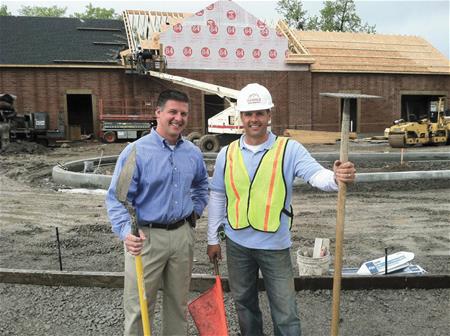 Birnkrant said the typical operator will invest $2.5 million to $3.5 million, on top of land-acquisition costs, to open a new express car wash, so selecting the right site is paramount, especially for smaller operators. If an operator’s second or third location struggles, that could limit his ability to secure financing for future sites and thwart his expansion plans, he said.
Birnkrant said the typical operator will invest $2.5 million to $3.5 million, on top of land-acquisition costs, to open a new express car wash, so selecting the right site is paramount, especially for smaller operators. If an operator’s second or third location struggles, that could limit his ability to secure financing for future sites and thwart his expansion plans, he said.
Given the high stakes involved, Birnkrant said operators should consider paying up for the best available spots. Car washes generally enjoy strong profit margins, and since so much of their debt is secured by real estate, operators can spread out the additional cost of obtaining a top-tier location over 20 to 25 years. If a location gives an operator a leg up over the existing competition and potential future competitors, it’s probably worth the higher asking price. “The difference in your monthly mortgage payment won’t be that significant, so it’s worth spending a bit more for that ‘A’ location,” he said.
“We’re starting to see that operators are less fearful of opening very close to each other, so you want to make sure that your site is situated in a way that it can’t be out-positioned,” he said. “In most cases, it makes sense to pay a little more to get that ‘A’ location because your location is one thing you’ll never be able to change.
“If you choose a ‘B’ location to save money on the land and a competitor decides to come into that ‘A’ location, then you may find yourself in a challenging spot that you really have no way to get out of.”
Birnkrant said the desire for an “A” location is one reason car wash operators are becoming increasingly comfortable with leasing their land instead of buying it, if that’s what it takes to saddle up next to established retail anchor tenants. If their lease is structured properly, operators should be able to obtain a loan structured in essentially the same way as if they were buying the land.
“If one site is leased land but checks all the boxes in terms of what you’re looking for, and your alternative is a weaker location but you can own the land, then I’d encourage operators to take a hard look at leasing the land,” he said. “Ultimately, they’re investing in the site for the cash flow, not for land appreciation that they hope to benefit from once their 25-year mortgage is paid off. For that reason, I think the shift toward increasing comfort with leased land makes a lot of sense.”
Communities with a high median income and high population density, including daytime population, are attractive to many businesses including car wash operators. However, while traffic count is important, not all traffic is equally valuable to retail locations.
According to Birnkrant, a site with a high traffic count may not be ideal if the speed limit is too high and fast-moving traffic won’t allow drivers enough time to slow down and pull into the car wash on an impulse. In addition, a car wash on a major thoroughfare between two big retail hubs — but with no other strong retail stores in its immediate vicinity — may struggle to draw customers from either hub, even if the traffic count is high. “Traffic count can be a misleading indicator in this situation,” he said.
Look for sites that are near daily trip generators, such as grocery stores, restaurants, home-improvement stores, gyms, movie theaters and schools. Even during the pandemic, consumers are still shopping for groceries, picking up takeout and working on home-improvement projects.
“When people run errands, they want to check multiple boxes in a row,” Birnkrant said. “They want to pick up their dry cleaning, go to the grocery store, swing by the bank and then pop into the car wash. So, if your car wash is kind of on an island without sufficient retail surrounding it, then you might find yourself capturing less traffic than you expected to.”
Birnkrant said local ordinances and prohibitive zoning can be insurmountable obstacles for car wash operators, forcing them to give up plans to build at desirable locations. But in some cases, it pays to hire a land-use attorney or project expeditor, many of whom are former city employees now working to help developers get their projects approved by city planning commissions.
“If you’re going to get a 20- or 25-year mortgage on your car wash, then spending a little bit extra on the project for land-use attorneys or expeditors to ensure that you get the discretionary approval you need is often a good use of money,” Birnkrant said.
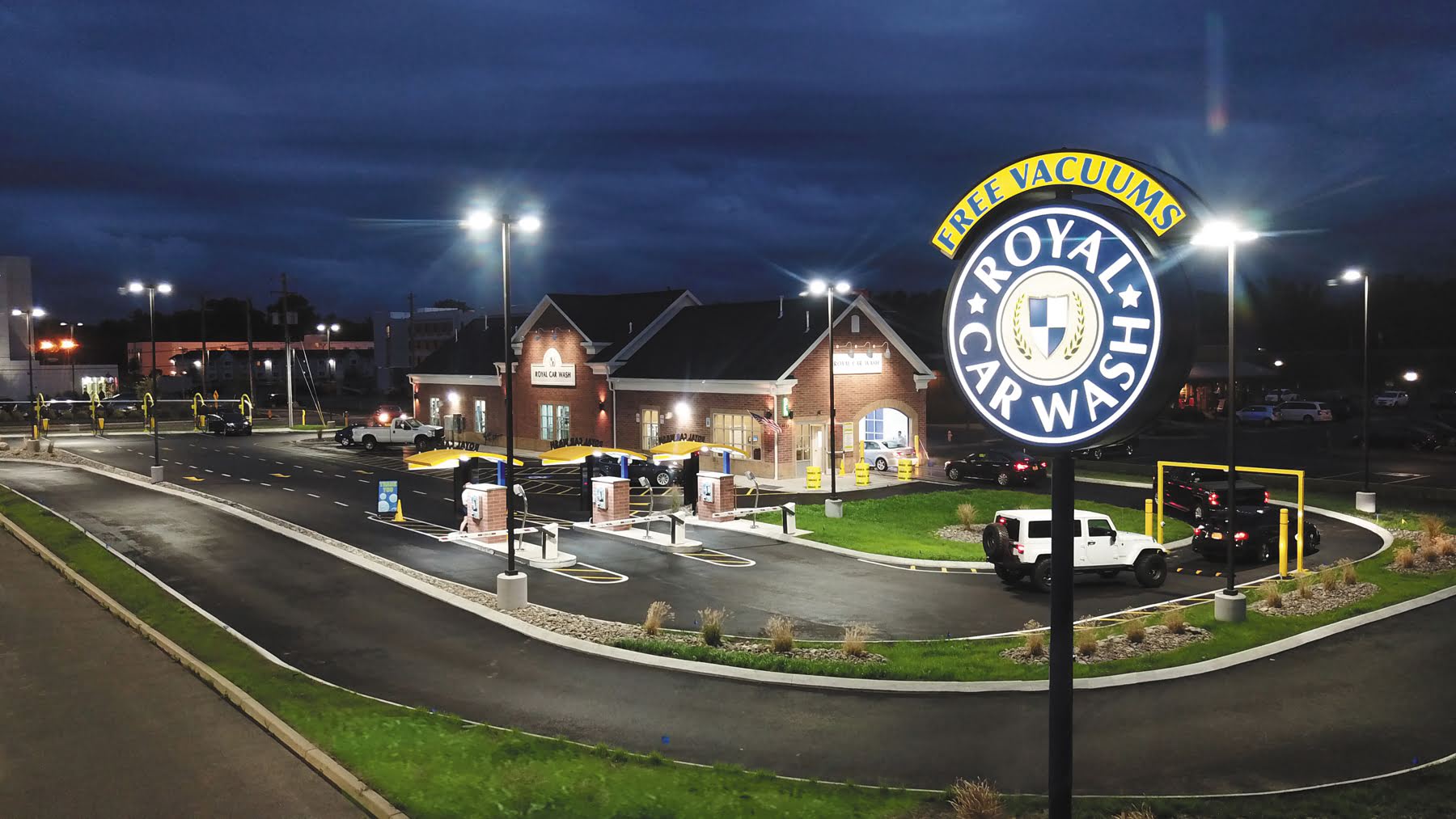
PERSISTENCE CAN PAY OFF
When Danny Daniele and his family’s development company wanted to build their first Royal Car Wash in Brighton, N.Y., they were told that car washes simply weren’t allowed in the town. But through patience, determination and almost $300,000 in legal fees, they were able to get the town’s board to change the law following a three-year legal battle.
Daniele said the board began voting on a proposed change to the ordinance just before midnight, and after the first four members were evenly split, the fifth member cast the decisive vote in his family’s favor, much to their satisfaction and relief.
“It was that last vote that got us across the finish line,” Daniele said. “If that last vote was a no, we would have been out $300,000, a lot of time and wouldn’t have had a car wash. If we find a site that we believe is a good fit for one of our businesses, we fight for it. If you don’t believe in a site — if you don’t believe that it’s going to work and that it’s the right fit — then you shouldn’t be fighting for it.”
The family would face no such adversity in building its second location, obtaining all the required approvals within 90 days. Now, there are 13 Royal Car Wash locations, with four more under construction. Daniele said his company tries to target cities and towns that are friendly toward businesses and want to add to their tax base, rather than those that are hostile toward development and have excessive regulations.
“We’ve learned that it’s good to find an attorney who’s very familiar with the local culture and has done multiple projects in that town,” Daniele said. “At least then, when you’re asking questions about the town board, you have an idea of what they’re looking for.
“Now, whenever we have a project that’s at all controversial, we absolutely get to know every board member that’s voting. We schedule a phone call, a Zoom meeting or a face-to-face meeting, show them the project one-on-one and then get their comments about it. That way, you can develop a bit of a rapport with them, which can really help. I don’t think a lot of people think to do that.”

